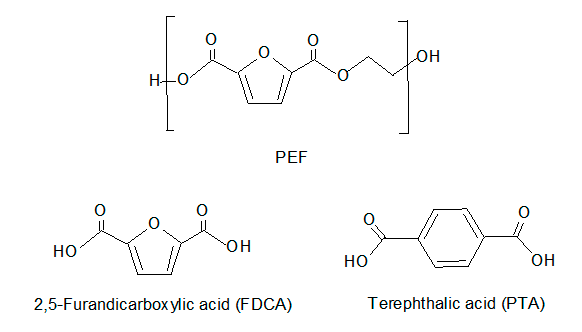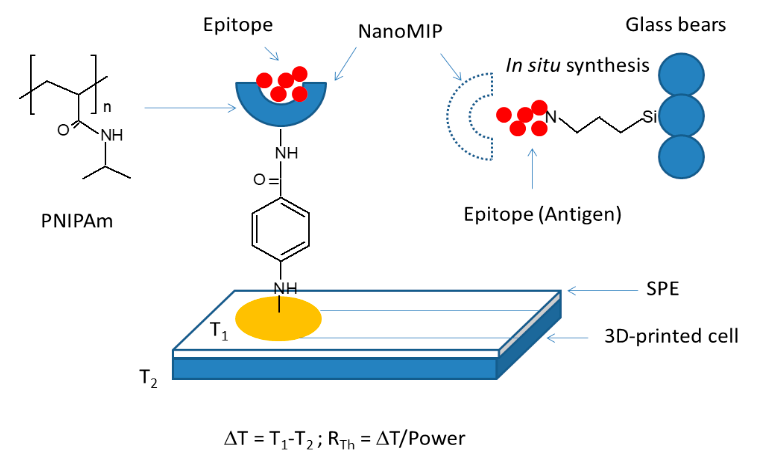SARS- CoV-2 thermal detection has been implemented1 using electrografted molecularly imprinted polymers (MIPs ca. PNIPAm) onto electrode fitted into 3D printed cell. N-isopropylacrylamide (NIPAm) is in situ polymerized to PNIPAm in presence of antigen epitope (or spike peptide SARS- CoV-2 fragment) previously attached to an amino silane anchored on glass bear solid support. In this way, a selective mold (NanoMIP) enable to bind to SARS-COV-2 antigen is prepared. This specific NaoMIP is then chemically attached to a screen printed electrode (SPE) of graphite ink onto a polyester substrate using 4-aminobenzoic acid (4-ABA) as binder.
SARS-CoV-2 antigens are thermally detected by mountain nanoMIP-functionalized SPEs into 3D-printed resin flow cells. Two thermocouples detect temperatures T1 and T2 and the thermal resistance induced by the attached antigen is measured by dividing the temperature difference by the power applied to maintain the heat sink at 37.00 oC. Antigens selectively attached to the nanoMIP, induces thermal resistance increase, proving the existence of virus antigen. Static Resin-cell prototype has been adapted to directly be used on the collected by a throat and nasal swab solutions. Reproducibility, cost, timing and detection limit improvements, as compared to the conventional antigen test, are claimed1.


1.- J. McClements, L. Bar, P. Singla, F. Canfarotta, A. Thomson, J. Czulak,R. E. Johnson, R. D. Crapnell, C. E. Banks, B. Payne, S. Seyedin, P. Losada-Pérez, M. Peeters, ACS Sens. (2022) https://doi.org/10.1021/acssensors.2c00100





